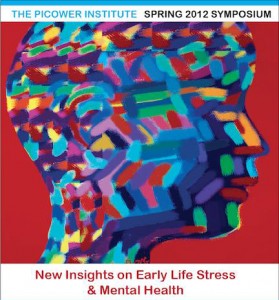Understanding Childhood Stresses That Lead to Mental Illness
-
-
slice.mit.edu
- 1
Filed Under
Recommended

MIT's Picower Institute for Learning and Memory tackled a tough subject in its spring symposium: New Insights on Early Life Stress and Mental Health.
Picower scientists have moved beyond the understanding that children who experience neglect, abuse, and deprivation are prone to depression, anxiety, and addiction as adults. They are focusing basic research tools on understanding environmental, genetic, and developmental factors that can lead to potential interventions.
"Our society wounds children," said Dr. Robert Anda, "it's really sad and dark. When I got into this work, I had no idea how violent our culture is, how neglectful, and how systemic through all segments of society adversity is. If you look for it, you will find it."
Dr. Anda described studies on Adverse Childhood Experiences (ACE) that show how having a battered mother or incarcerated father, or experiencing sexual abuse or neglect leads to lifelong problems. According to the ACE study, about two-thirds of the population has at least one of these experiences. The greater number of ACEs, the more likely individuals will have disrupted relationships, become victims of domestic violence, abuse alcohol or drugs, or suffer from mental illnesses. "The good news is that these things are highly preventable," he said.
"Genes load the gun, and environment pulls the trigger," said Andrew Garner, a pediatrician who spoke on Translating Developmental Science into Healthy Lives. Increasing the number of chronic or traumatic stresses changes the biology of an individual. "The ecology becomes biology and together they drive development across the lifespan."
Understanding the biological impact of ACEs can help researchers develop potential interventions, said Picower Associate Director Matt Wilson in opening remarks.
"When we think about stress and how it impacts society, we can also think about the intersection of these environment factors with developmental and genetic factors. Unfortunately those vectors point to a vulnerable population—children." Wilson said. "We also see the impact of early intervention and how this can translate into lifelong benefits and changes not just to individuals but to society."
Watch videos of the April 18, 2012, talks – just click the program topics.








Comments
Mohammed A Davis
Tue, 05/15/2012 5:58pm
I couldn't agree more on this subject, growing up I had many negative experiences from my father, beating my mother and siblings, including myself, the emotional abuse has led many problems encountered in my everyday life, from trust issues to keeping a job.